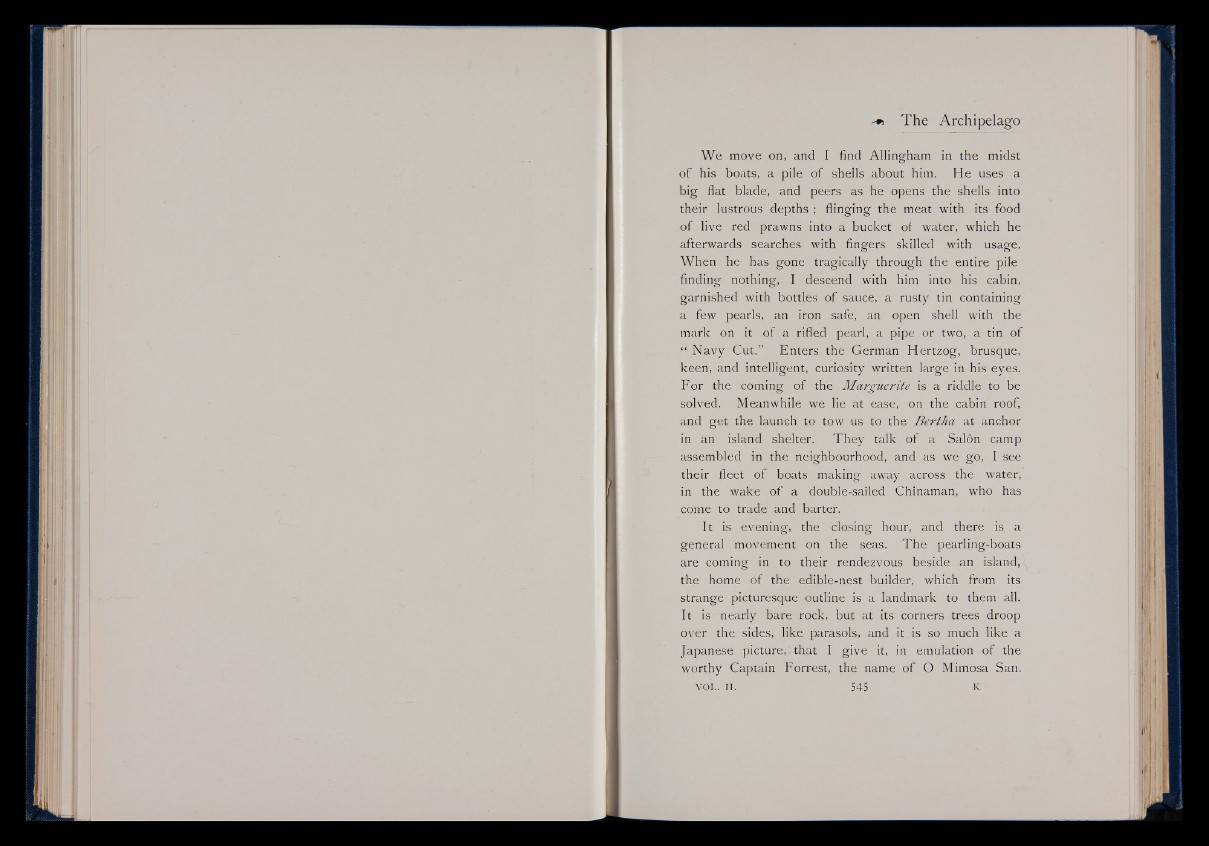
I
We move on, and I find Allingham in the midst
of his boats, a pile of shells about him. He uses a
big flat blade, and peers as he opens the shells into
their lustrous depths ; flinging the meat with its food
of live red prawns into a bucket ot water, which he
afterwards searches with fingers skilled with usage.
When he has gone tragically through the entire pile
finding nothing, I descend with him into his cabin,
garnished with bottles of sauce, a rusty tin containing
a few pearls, an iron safe, an open shell with the
mark on it of a rifled pearl, a pipe or two, a tin of
“ Navy Cut.” Enters the German Hertzog, brusque,
keen, and intelligent, curiosity written large in his eyes.
For the coming of the Marguerite is a riddle to be
solved. Meanwhile we lie at ease, on the cabin roof,
and get the launch to tow us to the Bertha at anchor
in an island shelter. They talk of a Salon camp
assembled in the neighbourhood, and as we go, I see
their fleet of boats making away across the water,
in the wake of a double-sailed Chinaman, who has
come to trade and barter.
It is evening, the closing hour, and there is a
general movement on the seas. The pearling-boats
are coming in to their rendezvous beside an island,
the home of the edible-nest builder, which from its
strange picturesque outline is a landmark to them all.
It is nearly bare rock, but at its corners trees droop
over the sides, like parasols, and it is so much like a
Japanese picture,/that I give it, in emulation of the
worthy Captain Forrest, the name of O Mimosa San.